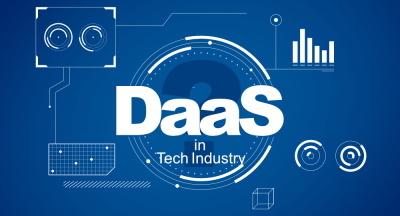Unlocking Business Potential with Data as a Service (DaaS)
-
In today’s fast-evolving digital economy, data is more than just a business asset—it is a critical foundation for growth, innovation, and competitive edge. Among the modern solutions empowering organizations to leverage their data effectively is Data as a Service (DaaS). This cloud-based data management model allows businesses to access, analyze, and utilize data from various sources without the burden of maintaining complex infrastructure. As enterprises increasingly prioritize agility and insights, DaaS is emerging as a powerful enabler of real-time, scalable, and cost-efficient data usage.
DaaS fundamentally reshapes the way organizations interact with data. By decoupling data from the systems that store it, DaaS enables seamless data access through web services and APIs. This allows users to retrieve structured and unstructured data on demand, regardless of where the data physically resides. The key benefit lies in the agility and flexibility it provides, empowering enterprises to make faster, more accurate decisions based on high-quality, up-to-date data. This data delivery model has gained prominence as cloud computing, AI, and big data analytics continue to redefine the digital landscape.
The demand for DaaS is closely tied to the need for streamlined data integration and the rapid adoption of cloud platforms. Businesses no longer want to manage data silos or invest heavily in IT infrastructure. Instead, they seek plug-and-play solutions that provide instant access to clean, curated data sets that can be integrated into their workflows or analytical tools. DaaS providers offer exactly that by hosting, maintaining, and delivering data through the cloud. This on-demand delivery enables teams to eliminate delays in data access and reduce the complexities of managing data pipelines internally.
A defining advantage of Data as a Service is its scalability. As data volumes grow exponentially, businesses require solutions that can scale without a corresponding increase in cost or effort. DaaS solutions are inherently built on scalable cloud platforms, allowing users to adjust their data consumption based on demand. Whether a company needs geospatial data, customer behavior insights, financial market data, or IoT-generated analytics, DaaS ensures that the right data is available in the right format, at the right time. This ability to scale data access efficiently contributes significantly to smarter business strategies and improved operational performance.
Another key driver behind the rising adoption of DaaS is enhanced data quality and governance. Leading DaaS providers implement strict protocols for data cleansing, validation, and enrichment before making it accessible to customers. This ensures that businesses receive reliable and accurate data, reducing the risks associated with bad data, such as flawed decisions or compliance issues. Furthermore, DaaS platforms often come with built-in compliance features that align with regulations like GDPR and HIPAA, giving users peace of mind when handling sensitive or personal data.
The integration of advanced technologies such as artificial intelligence and machine learning further strengthens the value proposition of DaaS. These technologies enhance the ability to process vast data sets quickly and extract actionable insights. By leveraging AI algorithms within the DaaS framework, businesses can uncover patterns, predict trends, and automate decision-making processes. As a result, industries such as finance, healthcare, retail, and manufacturing are increasingly turning to DaaS not just for raw data access but for intelligent analytics that drive digital transformation.
DaaS is also revolutionizing data monetization strategies. Many organizations are beginning to see the potential in turning their internal data into a revenue-generating product by offering it as a service to third parties. This opens new business models where data becomes a product, driving value not only internally but also externally. DaaS platforms provide the infrastructure and delivery mechanisms needed to enable secure and scalable data sharing between organizations, enhancing collaboration and ecosystem partnerships.
Despite its many advantages, successful DaaS adoption requires thoughtful planning. Organizations must evaluate their specific data needs, ensure alignment with business goals, and choose providers that offer robust security, integration capabilities, and support. Additionally, cultural readiness to adopt data-driven decision-making plays a pivotal role in maximizing the benefits of DaaS. As companies mature in their data strategies, DaaS will be a critical pillar in supporting agile, responsive, and data-centric business models.
Source - https://www.marketresearchfuture.com/reports/data-as-a-service-daas-market-6057
Data as a Service is redefining the way businesses interact with data, making it easier, faster, and more cost-effective to harness the full potential of information. It eliminates traditional data barriers, delivers real-time access to critical insights, and enables scalability without sacrificing governance. As the digital transformation journey accelerates, DaaS stands out as a key technology that empowers organizations to become more responsive, innovative, and intelligent in their operations. For enterprises seeking to stay ahead in a data-driven world, embracing DaaS is not just a technology choice—it is a strategic imperative.
